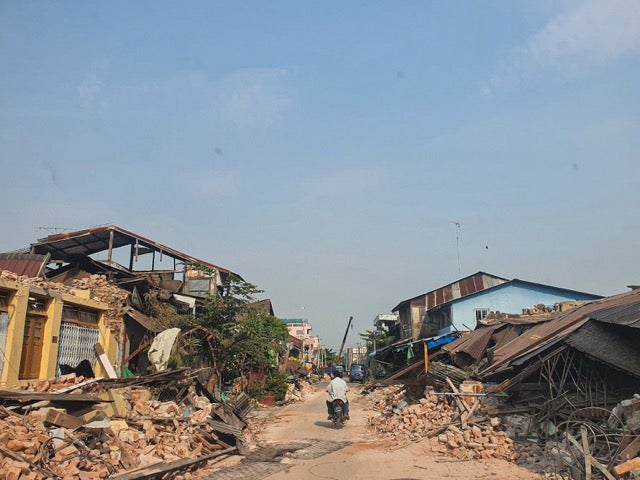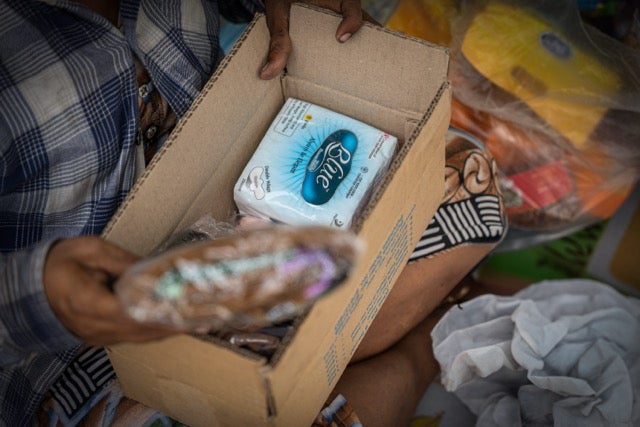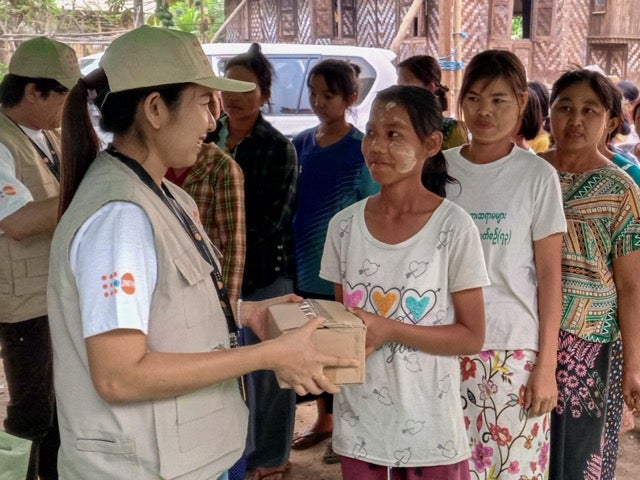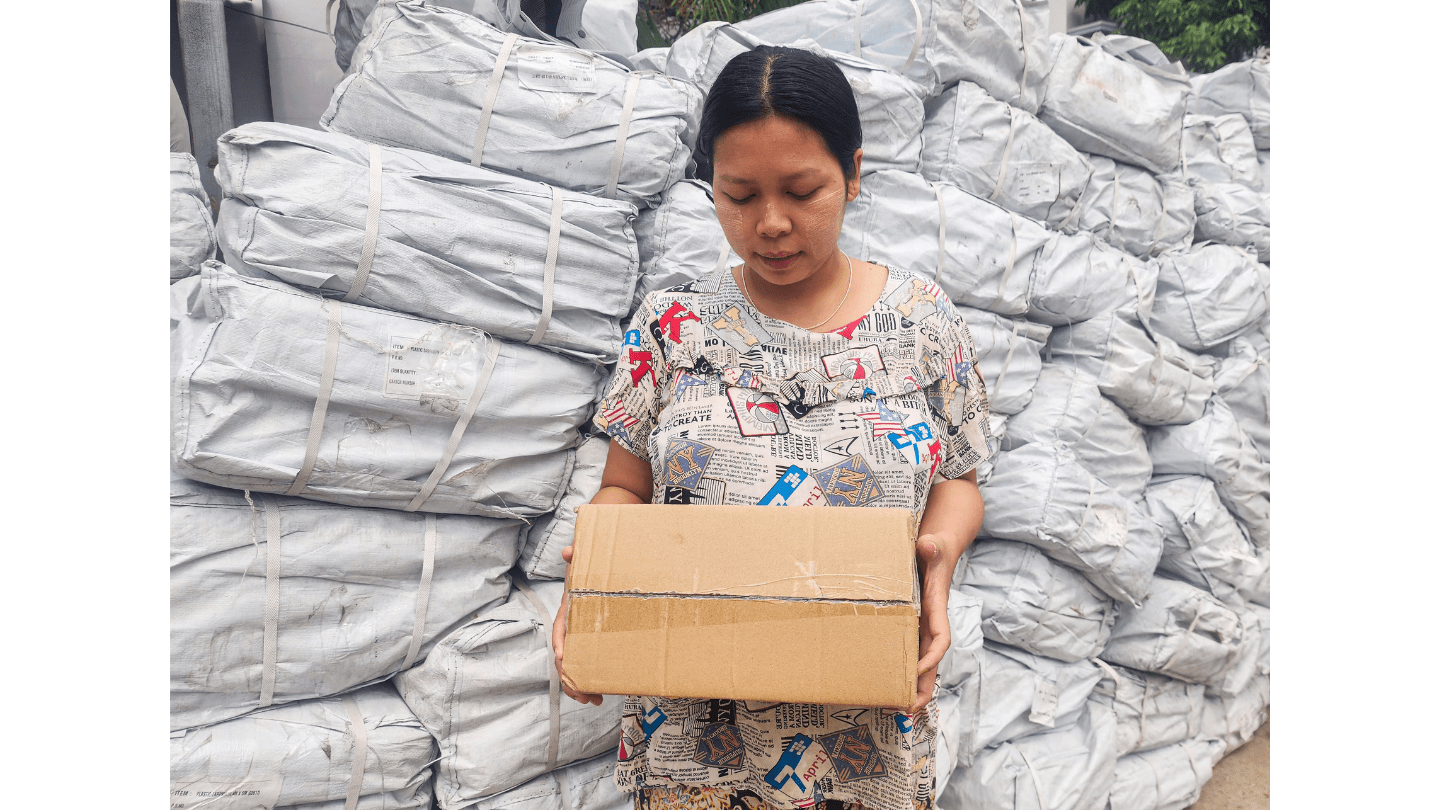When the earthquake hit Myanmar on 28 March 2025, 27-year-old *Khin was caring for her newborn baby, born just one week earlier. Her home, located in one of Pyinmana’s hardest-hit wards, collapsed like others in her neighbourhood.
“I felt a mix of fear and anxiety—it was terrifying,” she remembers. A few weeks later, that terror still haunts her. “Even now, I struggle to sleep. I always feel unsafe.”
The devastating earthquake didn’t just destroy buildings—it shattered Khin’s life. With their home collapsed to rubble, Khin and her family were forced outdoors into makeshift shelters. Her husband soon lost his job due to the disaster, making even basic survival a daily challenge. Food became scarce, clean water was difficult to find, and safety was constantly uncertain.

“I’m still recovering from childbirth, but I can't even visit health facilities because they're damaged,” Khin explains softly. “I feel unwell, and I’m deeply worried for my baby’s health.”
The earthquake intensified the vulnerabilities that women like Khin face daily. Just days after giving birth, she began menstruating. However, with local shops closed and family income severely reduced, essentials like sanitary pads and underwear felt impossible to obtain.

“It became very difficult to buy these items,” she explains. “It was more than just discomfort—it felt like losing my dignity.”
Staying outside, in temporary shelters compounded her fears. “When it rains, it's miserable. I'm frightened of criminals at night. Without safe shelter, I constantly feel vulnerable,” Khin says, visibly exhausted.
Khin emphasizes that many women in her community face severe barriers to accessing essential healthcare, especially after the earthquake:
“Right now, maternal and newborn health services are absolutely essential. Women need family planning (contraceptives) options—not just short-term but long-term methods too. But many of us simply can’t reach even basic obstetric care because hospitals are damaged and we have no money. This makes an already desperate situation even worse.”
She further highlights the deep psychological impacts women and girls experience in such crises:
“Many of us are facing severe psychological trauma. Feelings of sadness and fear are overwhelming. Healthcare services—particularly sexual and reproductive health services—and psychological support are crucial. Without mental health support, we struggle to cope.”
Amid this overwhelming crisis, Women’s Essential Item (WEI) kits provided Khin a lifeline of dignity and hope. Receiving basic items such as bras, underwear, and sanitary pads were essential for her.

She shared, “The moment I put on clean underwear and a bra for the first time since the earthquake, I felt a renewed sense of hope. These small things made me feel human again, giving me comfort amidst the chaos. It reminds us that We Are Not Forgotten.”
For Khin, the kits were more than just hygiene products—they symbolized dignity and care.
Yet, Khin stresses that immediate relief alone is not enough. She calls for long-term, meaningful support addressing deeper vulnerabilities that women and their families face:
“Beyond kits and immediate relief, we urgently need health care, mental health and psychosocial support, safe shelters, livelihood support and menstrual hygiene items. This is how we can rebuild our lives with dignity.”
Khin calls on humanitarian and relief agencies to recognize the challenges and resilience of women: “Invest in us, empower us—not just for now, but for our future. That’s how we’ll truly recover from this crisis.”
Despite overwhelming challenges, Khin remains strong and resilient. “Such thoughtful support reminded us that we’re not alone,” she says. “But our journey to rebuild is far from over. The world must see us—not just as victims of the crisis, but as survivors who deserve dignity and hope.”
*Name changed for privacy.

UNFPA, the United Nations sexual and reproductive health agency, in collaboration with UN agencies and humanitarian organizations on the ground, provides dignity kits, clean delivery kits, and essential items for the well-being and dignity of affected women while delivering lifesaving services such as primary health care, maternal care, and mental health and psychosocial support for women and girls in severely affected areas. UNFPA’s distribution of relief items is complemented by information on available Gender-based Violence (GBV) services and Psychological First Aid (PFA), ensuring access to critical (protection) services.


